In 1867, diplomat William H. Seward successfully negotiated with Russia to purchase Alaska for the United States with the approval of President Andrew Johnson. Americans began calling Alaska “Seward’s Folly” because the 584,412 square miles of land were undeveloped, agriculture was difficult to grow amid the frozen tundra, and much of the land was underpopulated. They also thought the purchase price was too expensive. The sale of Alaska would continue to be debated among American citizens for several years.
SEWARD'S FOLLY

Alaska Map, Getty Images, 2017
Soon After
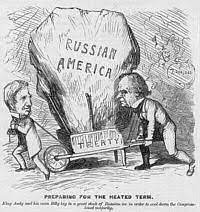
Political Cartoon of William H. Seward and Andrew Johnson, 1889, Granger.images
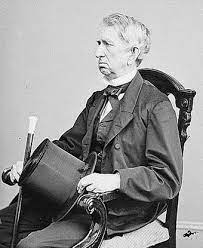
William H Seward, 1869, History.com images
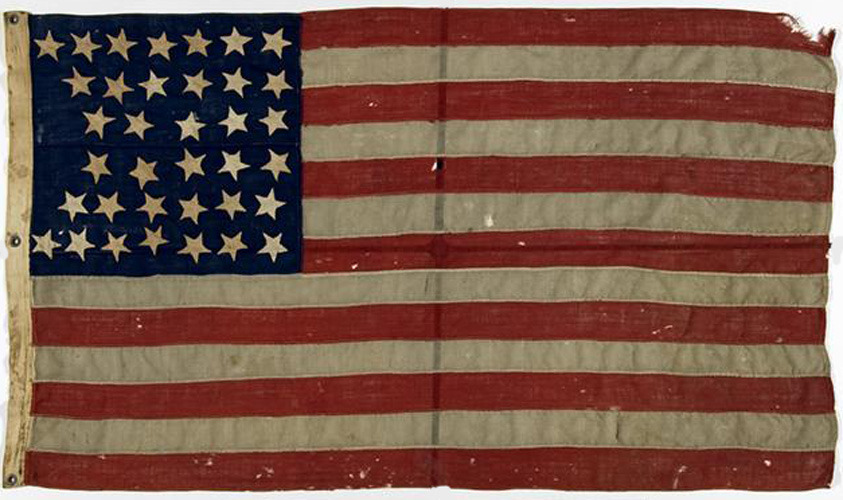
American Flag before Alaska Purchase, 1867, Rareflag.images
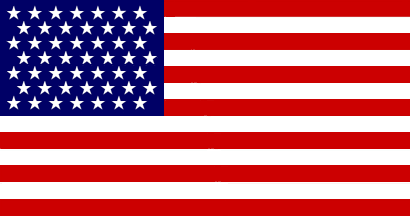
American Flag after Alaska became a state, 1959, crwflags
New York World, April 1, 1867
"Russia has sold us a sucked orange. Whatever may be the value of that territory and its outlying islands to us, it has ceased to be of any to Russia. The only way she ever did, or ever could, utilize the northwest coast was in prosecution of the fur trade. But that trade has declined and nearly run out by the destruction of the animals (particularly the otter), which have been hunted so industriously that not enough were left to breed and keep up the race. What remains of the Russian fur trade is not of sufficient importance to justify the expense of the naval protection required by the establishments. Russia has therefore done wisely in selling the territory and islands which to her had become useless."
Chicago Evening Journal, April 1, 1867
"The paltry sum of $7,000,000 for a country nearly eight times as large as this state [Illinois] and 400 miles of coast, shows Russia has some ulterior object to gain.....[It] more than doubles our Pacific Coast, yet adds but little to the productive territory of the nation. Russian America is a dreary waste of snow and ice. ...Its military importance is its chief value, although its commercial significance may become, eventually, very great. The commerce of the Pacific has not been developed to any considerable extent, but it is destined to pass and perhaps rival, and probably surpass, that of the Atlantic. This cession of Russian America will probably help us materially in controlling that commerce."
New York Daily Tribune, April 11, 1867
"We simply obtain by the treaty the nominal possession of impassable deserts of snow, vast tracts of dwarf timbers, frozen rivers, inaccessible mountain ranges, with a few islands where the climate is more moderate, and a scanty population supported by fishing and trading with the Indians. Virtually we get, by an expenditure of seven millions in gold, Sitka and the Prince of Wales Islands. All the rest is waste territory, and no energy of the American people will be sufficient to make mining speculations in the 60th degree north latitude profitable, or to reclaim wilderness which border on the Arctic Ocean. We may make a treaty with Russia but we can not make a treaty with the North Wind, or the Snow King."
Portland Daily Oregonian, April 2, 1867
"The purchase by our Government of the Russian North American Possessions is the most valuable acquisition of territory obtained by the United States since the cession of California. The negotiation was entirely unexpected, as no hint of it had escaped from any quarter. Considering the great value of this acquisition the sum paid for it-seven millions of dollars must be allowed to be small indeed. We paid ten million for Arizona, a piece of unproductive territory that can never be as great a value to the United States as this new purchase."
The London Times, April 2, 1867
"Our policy is clear. Since we have no right whatever to protest against an act entirely within the discretion of the Russian and United States Governments, let us not place ourselves in a false position by vain remonstrance. It is said that British Columbia is almost cut off from the Pacific by the occupation by what ought to be a portion of its seaboard. The sufficient answer is that it was effectually cut off before, for
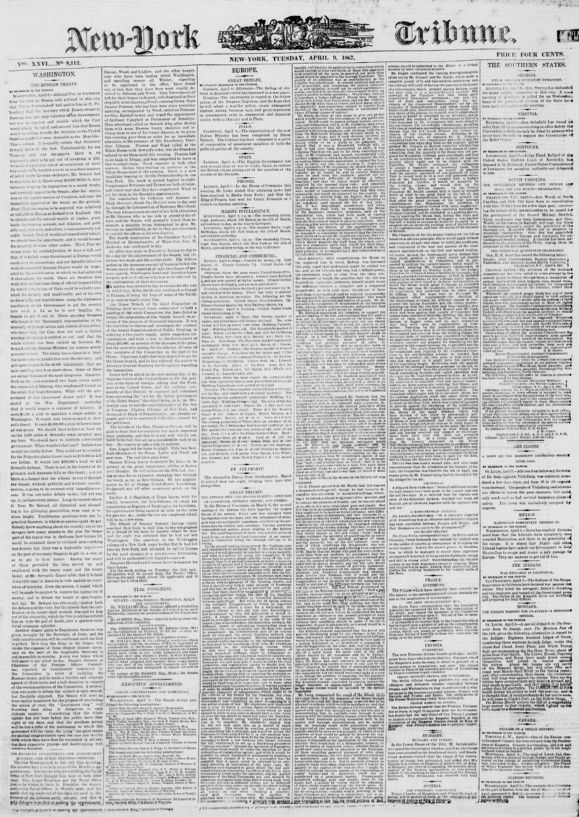
"The Russian Treaty" New York Tribune, 1867, Chronicling America, Library of Congress
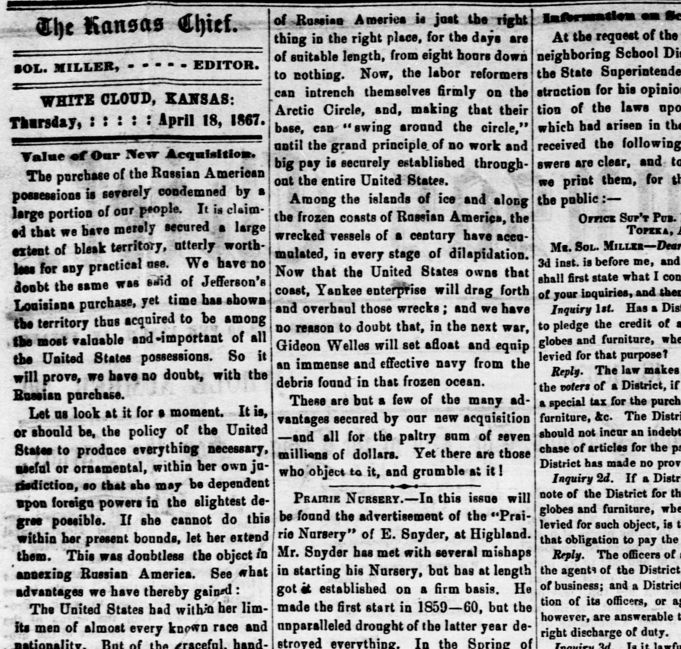
The Kansas Chief, 1867, Chronicling America, Library of Congress
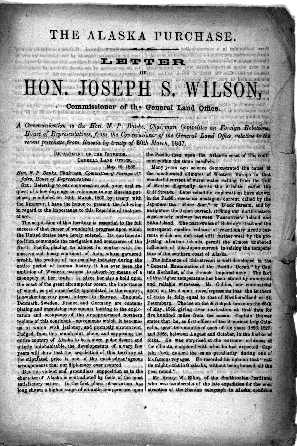
The Alaska Purchase, 1868
America has only bought what belonged to Russia, and no Englishman ever dreamt that Russia would part with it to us. We are materially no worse off than before, while our moral right to our own possessions remains absolutely untouched."
ALASKA PURCHASE
OUTCOMES